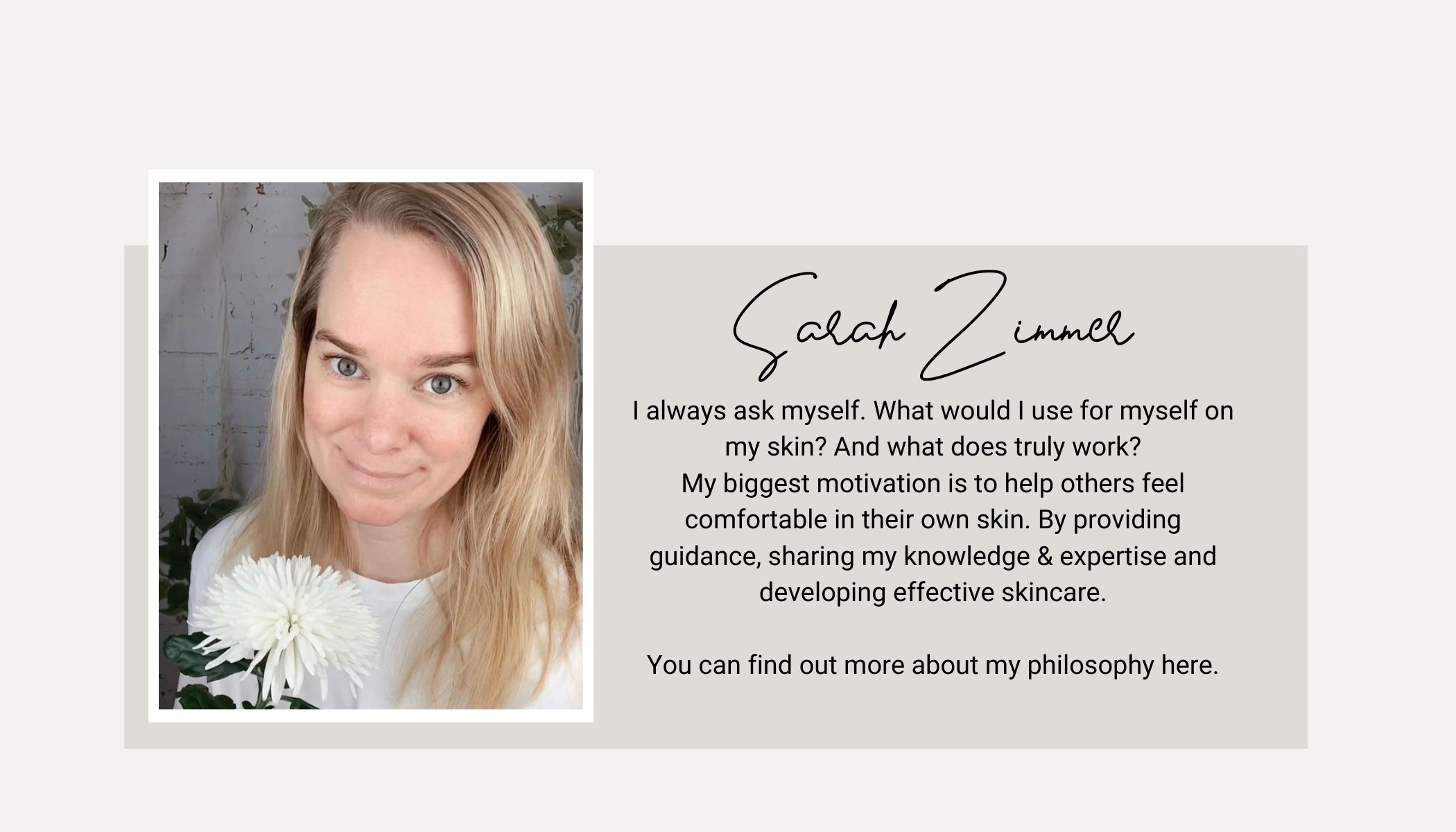Top 7 Reasons to avoid silicones on your skin
7 Reasons why to avoid silicone
No matter what your skin type is, one of the ingredients to avoid is silicone. Or silicones, I should say because these slippery polymers go under dozens of different names, with new compounds being developed all the time. That makes them hard to identify and even harder to avoid, as they’ve become the new ‘normal’ in beauty formulations, from makeup to skincare to haircare. Spreading silicones over your face may not be the best idea for a great complexion. Even silicone-based hair products can be bad news for your skin. Yup, hair shampoo gets to your scalp!
Let’s look at the following:
- Why beauty companies are really using silicones.
- How silicones can affect your skin.
- How to identify silicones on ingredient labels.
Why the Big Seven Beauty Companies (and others) Use Silicones
Here’s why silicones have become so ubiquitous in beauty products:
They’re safe (sort of). Silicones are generally considered a low hazard for humans. However, according to Health Canada, some types of silicones (siloxanes) may be harmful to the environment and its biological diversity.
They’re smoothing. Silicones give products a silky, spreadable, luxurious texture. They fill in crevices to make skin look and feel smoother—which makes you think the product is “working”, even though it’s only a temporary, surface effect which will be gone with the next clean.
They’re water-resistant. Hydrophobic silicones form a seal over the skin, which allows companies to claim longer-lasting (24- to 48-hour) “hydration” benefits. The same ingredient family is behind sweat-resistant sunscreens, and most makeup-setting sprays.
They’re cheap. Let’s get real. This is the main reason why silicones are everywhere! Beauty companies care more about the bottom line than actually helping your skin. They’d rather use cheap, man-made plastics as fillers than formulate with more expensive raw materials that may have a shorter shelf life. But don’t assume this means only drugstore brands use silicones—they are also to be found in even the priciest lines.
How silicones affect your skin
No 1 Silicones trap debris in your pores
Like plastic wrap, silicones form a barrier on top of your skin. That barrier can lock in moisture, yes, but it can also trap dirt, sweat, bacteria, sebum, dead skin cells and other debris along with it!
No 2 Silicones can cause acne and congestion
Prolonged exposure to oil, dead skin and bacteria underneath the semi-occlusive seal of silicones can lead to increased breakouts. If you are acne-prone, I consider silicones among the most important ingredients to avoid—maybe even THE most important. Silicones can also be a culprit in under-the-skin clogs (a.k.a. congestion), even if you don’t develop full-blown acne.
No 3 Silicones can make your skin dull and dehydrated
Silicones could also be clogging your pores, but manifesting as dryness and dullness instead of acne. Not only do silicones prevent additional moisture from getting in, but the impacted materials can dehydrate your pores and throw your skin’s natural regulatory processes off-balance. The result? Your skin becomes less able to shed dead layers and hydrate itself.
No 4 Silicones interfere with cell renewal
Our skin renews itself every 28 days, whereby old cells are sloughed off and new cells make their way up to the surface. Silicones inhibit this process by slowing down the production of new cells and keeping dead cells stuck longer. Impaired cell renewal could decelerate the improvement of conditions such as pigmentation, redness, fine lines and scarring!
No 5 Silicones deliver nothing beneficial to your skin
When you use skincare products heavy in silicones, you’re not actually hydrating or nourishing your skin, no matter what the label may claim—it’s simply a short-term smoothing. (And a very lazy way of formulating, I might add!) As beauty consumers, we deserve higher-quality ingredients that support skin health. Think: botanicals like aloe vera, and safe butters and oils such as shea and jojoba, for starters.
No 6 Silicones block other ingredients from absorbing
If you are layering products (which most of us do!), silicones can prevent them from doing their jobs properly. Let’s say you use a silicone-based micellar water or serum. Any moisturizers or treatments you put on next could have a diminished ability to penetrate, rendering them less effective. Heck, I even suspect that silicones probably impede the absorption of any beneficial ingredients within the same formula!
No 7 Silicones can be difficult to remove
The most common silicone, dimethicone, is extremely heavy and leaves a coating on the skin unless it is carefully removed. This is often why people see such a difference from nightly double cleansing, because it’s properly removing the silicones from your skin—a single pass with a regular face wash simply isn’t enough! The same goes for silicone hair conditioners; even if you’ve rinsed with water, they can leave behind residue that triggers back and hairline acne.
How To Spot Silicones in Beauty Products
The easiest way to identify silicones on product labels is to look for words that end in one of these:
Cone
- Dimethicone
- Methicone
- Trimethicone
- Cyclomethicone
- Amodimethicone
- Trimethylsilylamodimethicone
Siloxane
- Cyclopentasiloxane
- Polydimethylsiloxane
Conol
- Dimethiconol
There is an increasing trend towards using silicone ingredients that you might not immediately recognize. You may wish to look for these names as well:
Polymers
- C10-30 Alkyl acrylate crosspolymer
- VP / VA Copolymer
- Polybutene
- Polyisobutene
It is upsetting to see that so many beauty companies purport to be helping our complexions while cranking out these cheap formulations devoid of natural, nourishing ingredients!
We’d really encourage you to find healthier alternatives, especially with your moisturisers and foundations. We have used the richest and purest biomimetic ingredients and sourced those directly from farmers working. We want to do it differently. Better.











Leave a comment